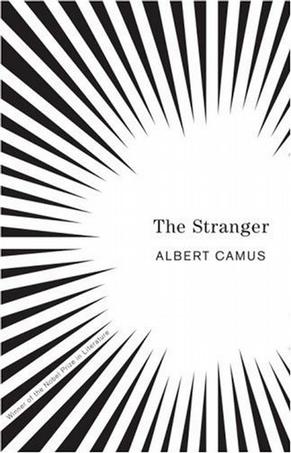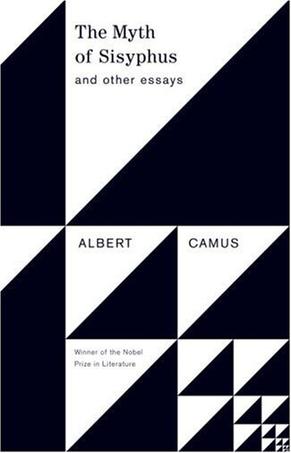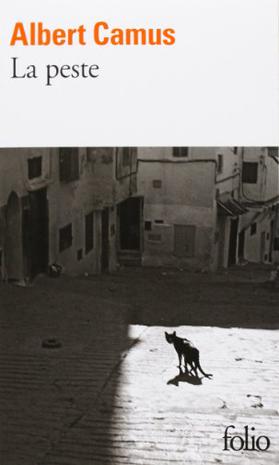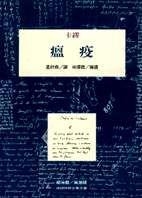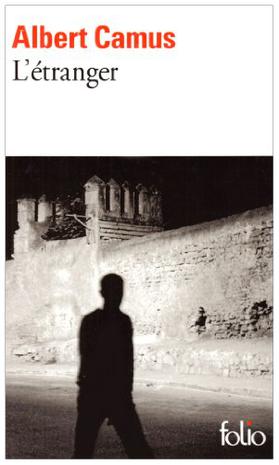欢迎来到相识电子书!
标签:Camus
-
The Rebel
The Rebel is an essay on artistic, historical, and metaphysical rebellion, in which he lays out the difference between revolution and revolt. Camus sees revolt as a peaceful, evolutionary process that requires leadership but not violence. He criticizes Hegel's work, accusing it of glorifying power and the state over social morality and ethics, and he accuses Marx of co-opting Hegelian philosophy to allow "any means to an end". Camus prefers Mediterranean humanism, a philosophy grounded in nature and moderation, to the violence and historicism he sees as part and parcel to what he calls the "Absolutist" philosophies. The attacks on Hegel, Marxism and nihilism in The Rebel had a profound effect on Camus' peers. The book was described as intellectual treason by leftist critics, and a review by Francis Jeanson in Les Temps Modernes accused Camus of being a traitor to the left. After Camus attempted to defend himself in a letter to the publication, Jean-Paul Sartre, the editor of Les Temps Modernes at the time, published an open letter in response that tallied 19 pages. The letter included personal attacks, and marked the end of the two philosophers' friendship. -
The Outsider
In his classic existentialist novel, Camus explores the predicament of the individual who is prepared to face the benign indifference of the universe courageously and alone. -
L'Etranger
L'Etranger has the force and fascination of myth. The outwardly simple narrative of an office clerk who kills an Arab, 'a cause du soleil', and finds himself condemned to death for moral insensibility becomes, in Camus's hands, a powerful image of modern man's impatience before Christian philosophy and conventional social and sexual values. For this new edition Ray Davison makes use of recent critical analysis of L'Etranger to give a full and concise description of Camus's early philosophy of the Absurd and the ideas and preoccupations from which the novel emerges. Davison also discusses the developing pattern of Camus's notion of the art of the novel, his views on 'classicism', simplicity and ambiguity, his fondness for paradox, and his love of everyday situations which yield to mythical interpretation. -
L'Etranger
L'Etranger has the force and fascination of myth. The outwardly simple narrative of an office clerk who kills an Arab, 'a cause du soleil', and finds himself condemned to death for moral insensibility becomes, in Camus's hands, a powerful image of modern man's impatience before Christian philosophy and conventional social and sexual values. For this new edition Ray Davison makes use of recent critical analysis of L'Etranger to give a full and concise description of Camus's early philosophy of the Absurd and the ideas and preoccupations from which the novel emerges. Davison also discusses the developing pattern of Camus's notion of the art of the novel, his views on 'classicism', simplicity and ambiguity, his fondness for paradox, and his love of everyday situations which yield to mythical interpretation. -
The Stranger
The Stranger is not merely one of the most widely read novels of the 20th century, but one of the books likely to outlive it. Written in 1946, Camus's compelling and troubling tale of a disaffected, apparently amoral young man has earned a durable popularity (and remains a staple of U.S. high school literature courses) in part because it reveals so vividly the anxieties of its time. Alienation, the fear of anonymity, spiritual doubt--all could have been given a purely modern inflection in the hands of a lesser talent than Camus, who won the Nobel Prize in 1957 and was noted for his existentialist aesthetic. The remarkable trick of The Stranger, however, is that it's not mired in period philosophy. The plot is simple. A young Algerian, Meursault, afflicted with a sort of aimless inertia, becomes embroiled in the petty intrigues of a local pimp and, somewhat inexplicably, ends up killing a man. Once he's imprisoned and eventually brought to trial, his crime, it becomes apparent, is not so much the arguably defensible murder he has committed as it is his deficient character. The trial's proceedings are absurd, a parsing of incidental trivialities--that Meursault, for instance, seemed unmoved by his own mother's death and then attended a comic movie the evening after her funeral are two ostensibly damning facts--so that the eventual sentence the jury issues is both ridiculous and inevitable. Meursault remains a cipher nearly to the story's end--dispassionate, clinical, disengaged from his own emotions. "She wanted to know if I loved her," he says of his girlfriend. "I answered the same way I had the last time, that it didn't mean anything but that I probably didn't." There's a latent ominousness in such observations, a sense that devotion is nothing more than self-delusion. It's undoubtedly true that Meursault exhibits an extreme of resignation; however, his confrontation with "the gentle indifference of the world" remains as compelling as it was when Camus first recounted it. --Ben Guterson From Library Journal The new translation of Camus's classic is a cultural event; the translation of Cocteau's diary is a literary event. Both translations are superb, but Ward's will affect a naturalized narrative, while Browner's will strengthen Cocteau's reemerging critical standing. Since 1946 untold thousands of American students have read a broadly interpretative, albeit beautifully crafted British Stranger . Such readers have closed Part I on "door of undoing" and Part II on "howls of execration." Now with the domestications pruned away from the text, students will be as close to the original as another language will allow: "door of unhappiness" and "cries of hate." Browner has no need to "write-over" another translation. With Cocteau's reputation chiefly as a cineaste until recently, he has been read in French or not at all. Further, the essay puts a translator under less pressure to normalize for readers' expectations. Both translations show the current trend to stay closer to the original. Marilyn Gaddis Rose, SUNY at Binghamton Copyright 1988 Reed Business Information, Inc. --This text refers to the Hardcover edition. Review “The Stranger is a strikingly modern text and Matthew Ward’s translation will enable readers to appreciate why Camus’s stoical anti-hero and devious narrator remains one of the key expressions of a postwar Western malaise, and one of the cleverest exponents of a literature of ambiguity.” –from the Introduction by Peter Dunwoodie From the Hardcover edition. Description Through the story of an ordinary man unwittingly drawn into a senseless murder on an Algerian beach, Camus explored what he termed "the nakedness of man faced with the absurd." First published in 1946; now in a new translation by Matthew Ward. Language Notes Text: English (translation) Original Language: French From the Inside Flap Through the story of an ordinary man unwittingly drawn into a senseless murder on an Algerian beach, Camus explored what he termed "the nakedness of man faced with the absurd." First published in 1946; now in a new translation by Matthew Ward. -
異鄉人
我知道這世界我無處容身, 只是,你憑什麼審判我的靈魂? 存在主義代表作․諾貝爾文學獎得獎小說․二十世紀法國文學經典 獨家授權․全新譯本 他們說,媽媽死了,我沒哭;這是無情,該死。 隔天就和女友廝混;這是不孝,該死。 挑撥朋友仇家互鬥;這是不義,該死。 我合該天地不容,人神共憤, 但你們企圖用來拯救我的那一套,又算什麼? 我殺了人,只因為夏日陽光刺眼太熱。 世界總是喋喋不休地告訴人們,行為舉止甚至思想應該如何符合社會約定俗成的,種種道德規範下的節度。 但是,莫梭,一個居高臨下的鳥瞰者,冷靜自持,無動於衷,漠視七嘴八舌急於發表意見和批判的群眾。他倦於給出令眾人滿意的標準答案,他對合乎禮俗但不合於自己真實感受的事物,無法找到適當的對應方式和距離,於是,他被大加指責為無情、不孝、不義。 莫梭不知道在與世界衝撞的窘境下,自己存在的價值和意義。 他鳥瞰自己,也鳥瞰他人,探索內在情感與外在世界的關係,他還沒找到答案,如何給別人(何況是別人「想要的」)答案? 在這種種荒謬的情境中,莫梭凸顯了「獨立的個人」的困窘。 在他沒找到答案之前,(可能窮極一輩子都在摸索)他注定是: 一個心靈上永遠的異鄉人,一個與既定的社會格格不入的局外人。 卡繆形塑的「現代荒謬英雄」莫梭於焉誕生, 深深地影響了後世無數孤獨靈魂,得以正視我們混亂、無依的處境。
热门标签
下载排行榜
- 1 梦的解析:最佳译本
- 2 李鸿章全传
- 3 淡定的智慧
- 4 心理操控术
- 5 哈佛口才课
- 6 俗世奇人
- 7 日瓦戈医生
- 8 笑死你的逻辑学
- 9 历史老师没教过的历史
- 10 1分钟和陌生人成为朋友

